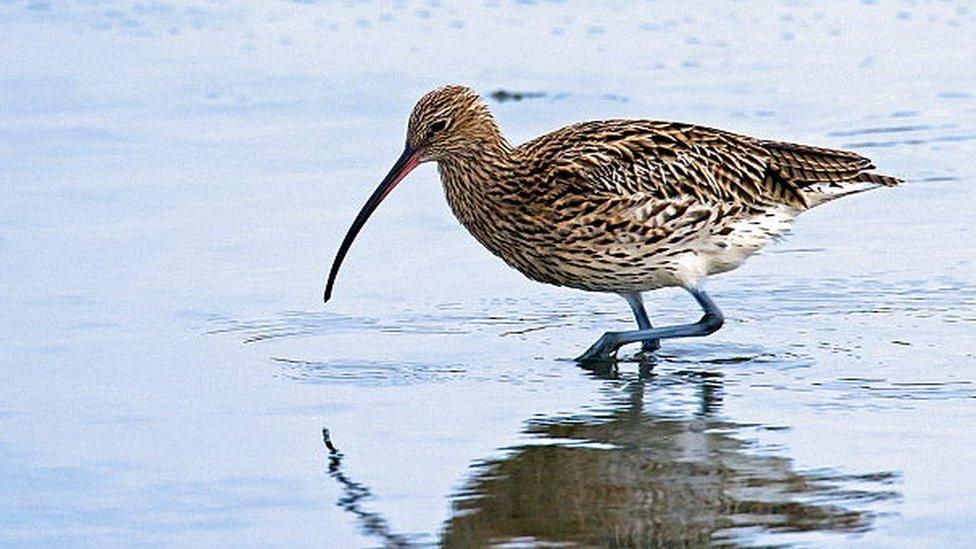Curlew: Urgent work needed to save 'loved' endangered bird
- Published
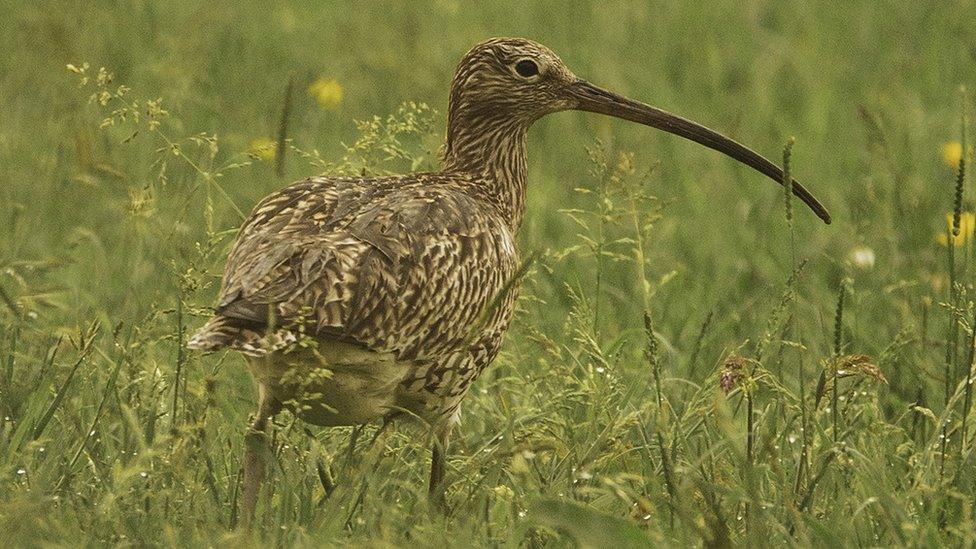
The newly-launched Curlew Recovery Partnership aims to work with farmers, gamekeepers and researchers to support the wading bird
A project has been launched to secure the future of the curlew which faces regional and national level extinction.
Farming practices, predators and loss of habitat have led to a huge drop in breeding pairs and chicks being born.
"They are deeply loved and not just by birders. They make the most wonderful noise," said Dr Geoff Hilton of the Wildfowl and Wetlands Trust (WWT).
Wildlife groups say curlews should be considered the UK's most urgent bird conservation priority, external.
There are around 68,000 pairs of breeding curlews in the UK which makes up about a quarter of the breeding global population.
Numbers have been in long-term decline since the 1970s and have almost halved in the UK over the past 20 years.
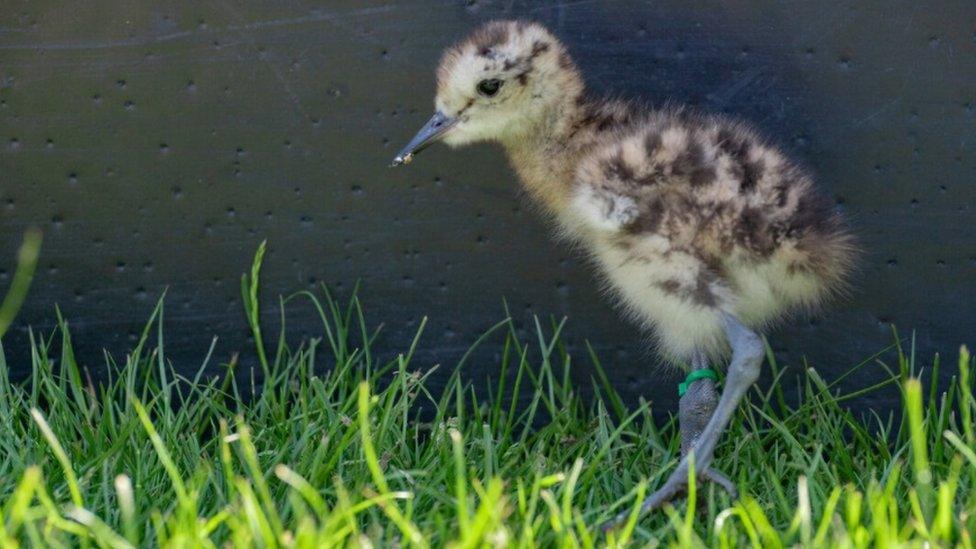
The Wildfowl and Wetlands Trust in Slimbridge is rearing chicks in safety as part of a process called headstarting
Nine organisations, including Natural England and the RSPB, make up the Curlew Recovery Partnership which was launched at the beginning of March.
It followed Curlew Recovery Summits hosted by the Prince of Wales, on Dartmoor in 2018 and at Highgrove last year.
"The hauntingly evocative cry of the curlew is now all too seldom heard. This most wonderful bird needs urgent support," said Prince Charles.
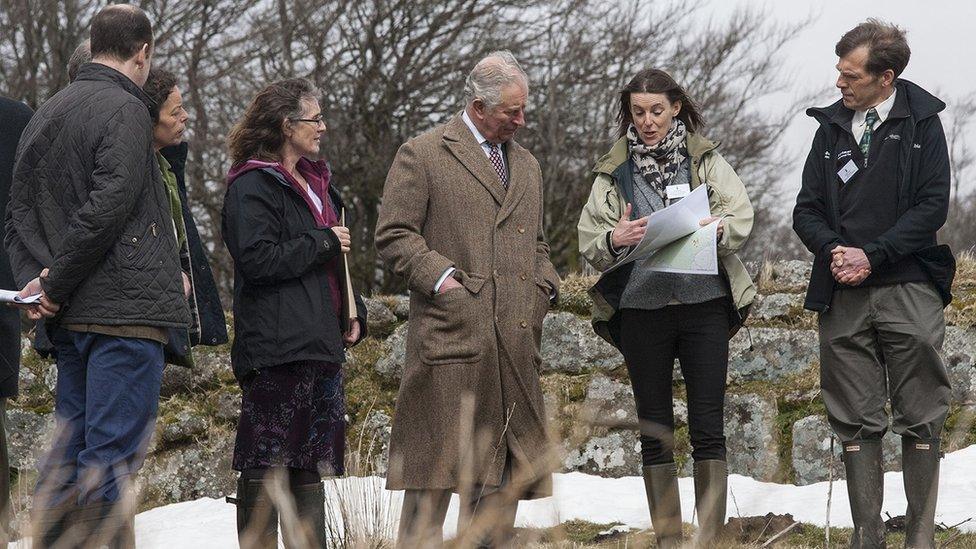
Prince Charles described the curlew as 'special' and urged people to play their part in helping to save it for future generations
The WWT at Slimbridge in Gloucestershire is involved in three conservation projects, in the Severn Vale, Dartmoor and Norfolk.
Dr Hilton said numbers were steadily disappearing in the south, with "a few hundred" pairs left, estimating there were about 35 in the Severn Vale, 20 in Somerset and that they had almost disappeared from Dartmoor.
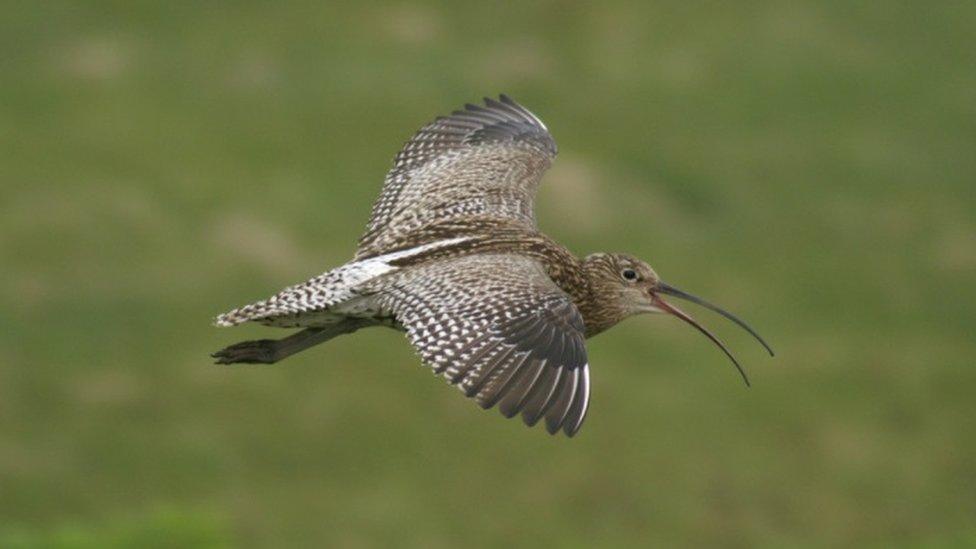
Curlew numbers are also falling significantly in Wales, Scotland and Northern Ireland
"The habitat needs to be right and we are working with farmers to create habitats to help restore the population. If we lose the British population then a quarter of the birds will be lost.
"We have them in Gloucestershire and they are as much part of the heritage as Gloucester Cathedral," he said.
Dr Hilton said the main reasons for the decline in numbers was loss of habitat and the large number of predators in the UK.
"We have lost a lot of wetlands and modern farming sees fields cut more regularly so the eggs get mown and destroyed.
"They are also at risk from predators like foxes and crows who don't hunt them but are opportunistic and will eat them if they get the chance," he said.
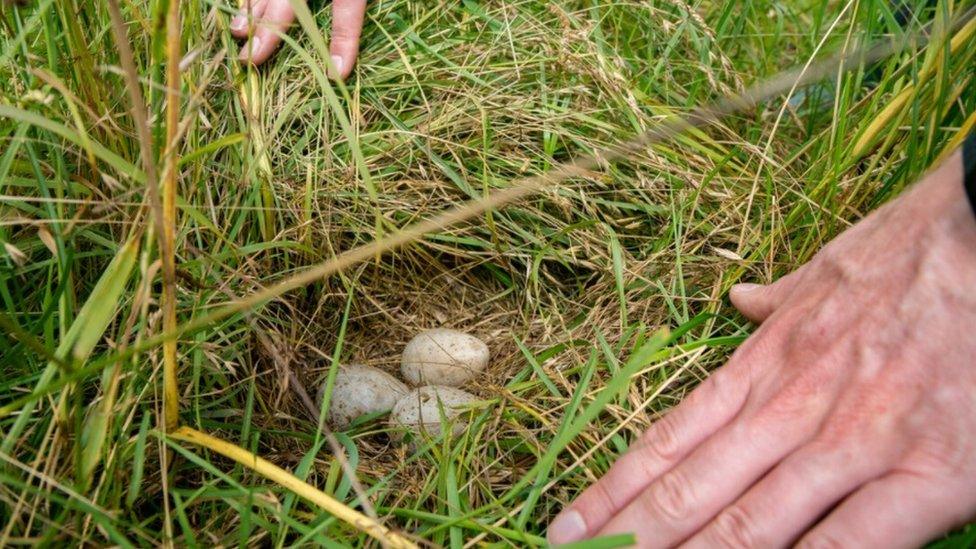
Curlew nests and eggs are often victim to predators and farming machinery resulting in fewer chicks making it to adulthood
As part of the Severn Vale project, WWT has been taking eggs from the wild to incubate and rear chicks safely in aviaries to ensure they survive in the critical early period of their lives.
In the process known as headstarting, chicks are released back into the wild when they are old enough to fly.
"When we find some eggs in a nest we can also build a fence around it to protect it and help boost numbers. The adults live for 20 years but they are producing almost no fledglings so at some point the numbers will fall off a cliff.
"We expect the general recovery to be about ten years plus. But getting it right for curlews means we can get it right for a lot of other animals too."
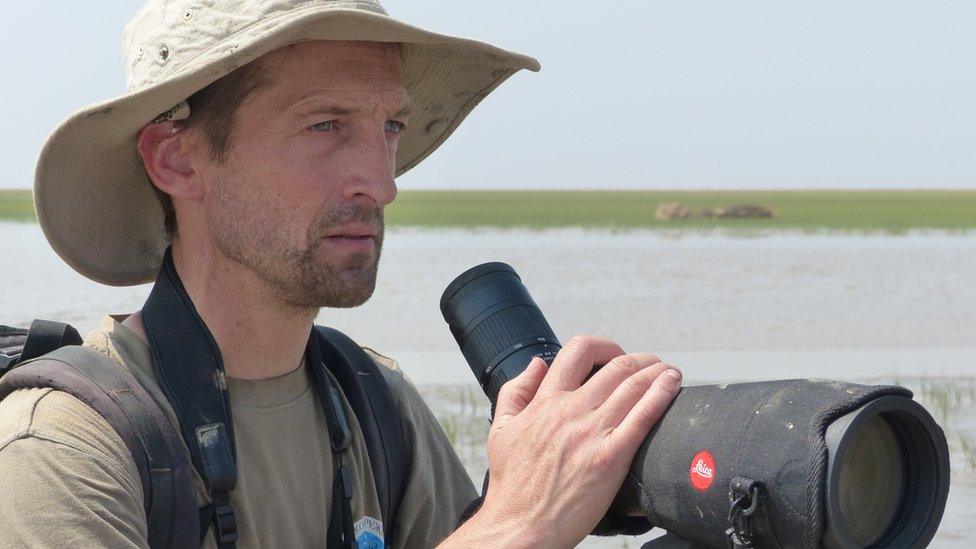
Dr Geoff Hilton, Head of Conservation Evidence at WWT, said lessons learned during the Curlew Recovery Programme could be used to boost other endangered species
Chair of the Curlew Recovery Partnership Mary Colwell said they were "determined to reverse the decline".
"The disappearance of curlews from across the open landscapes of England is deeply sad and a very tangible reminder of the crisis facing our wildlife," she added.

Follow BBC West on Facebook, external, Twitter, external and Instagram, external. Send your story ideas to: bristol@bbc.co.uk , external
- Published11 March 2021
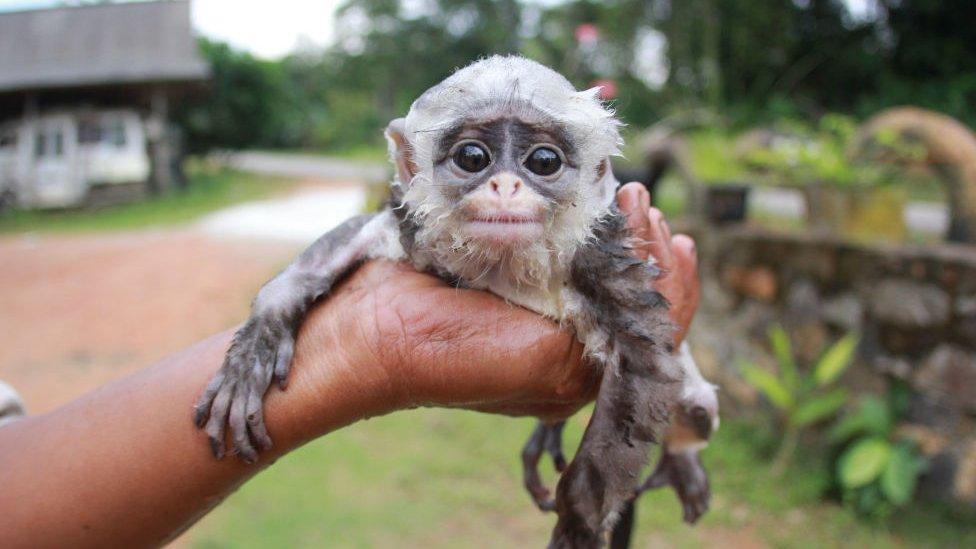
- Published11 March 2021
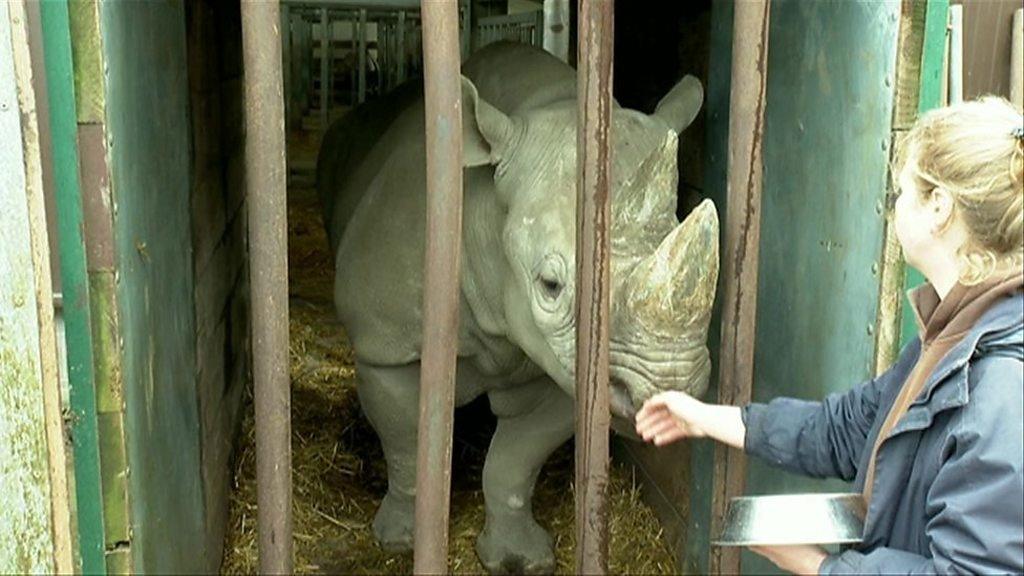
- Published18 February 2021
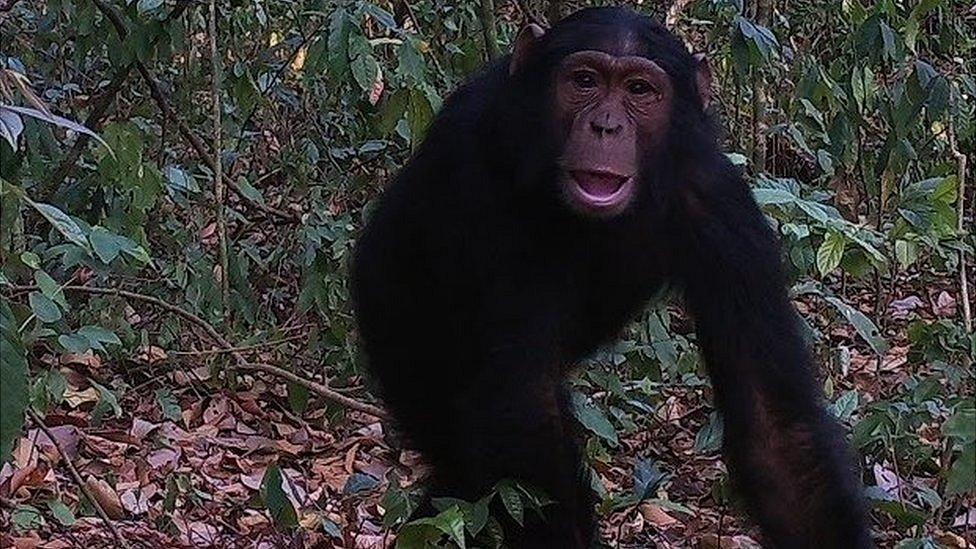
- Published11 March 2021
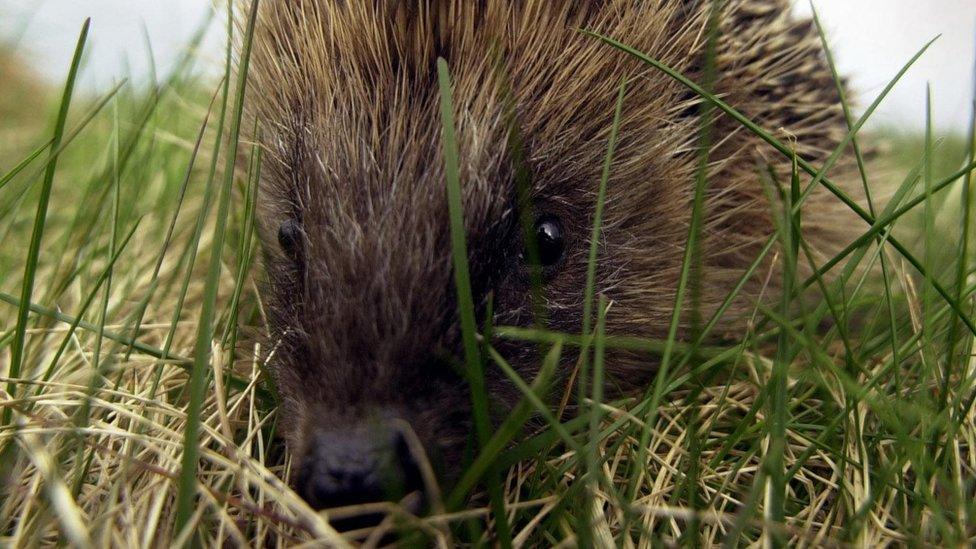
- Published21 January 2021
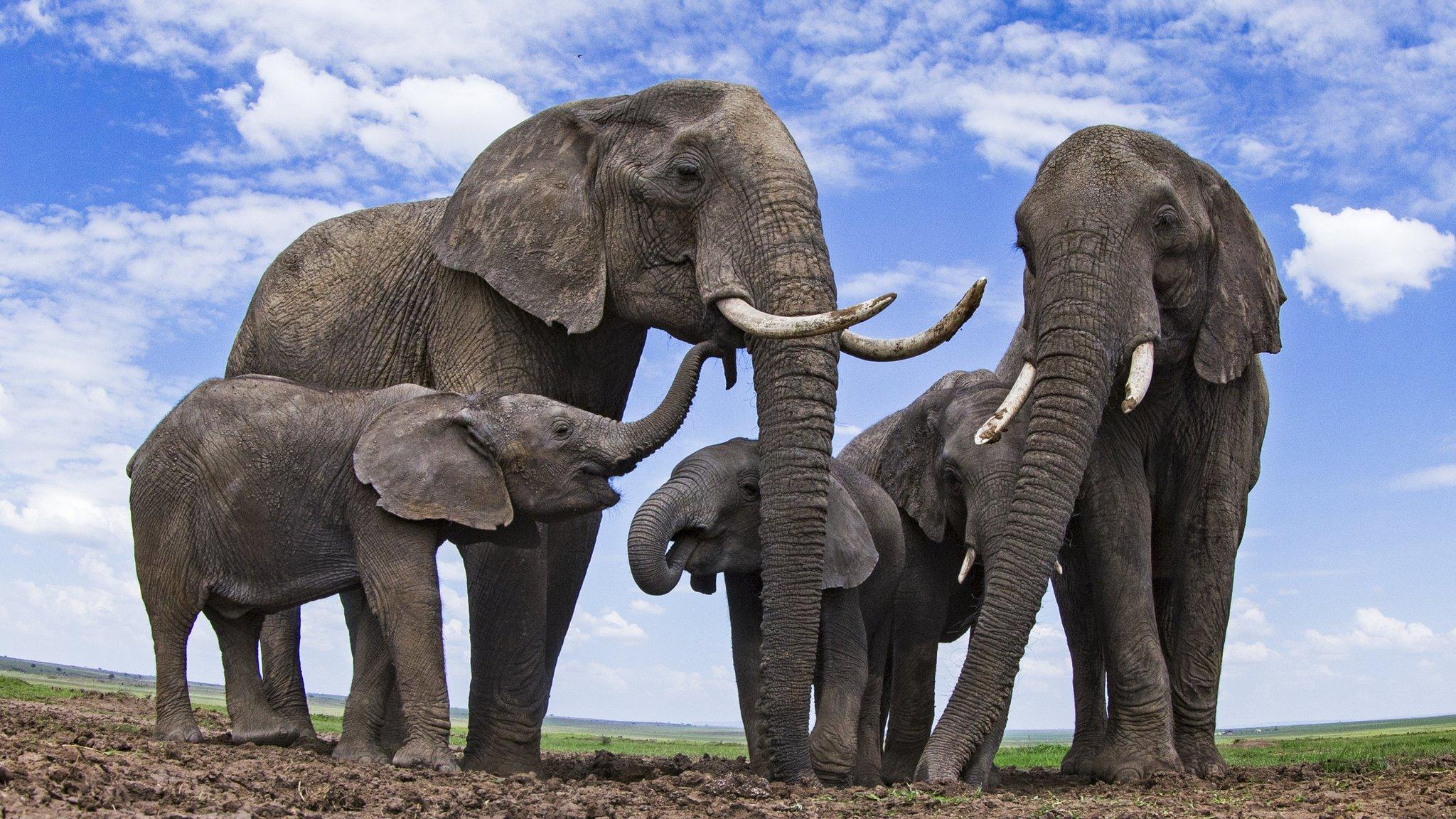
- Published2 September 2020
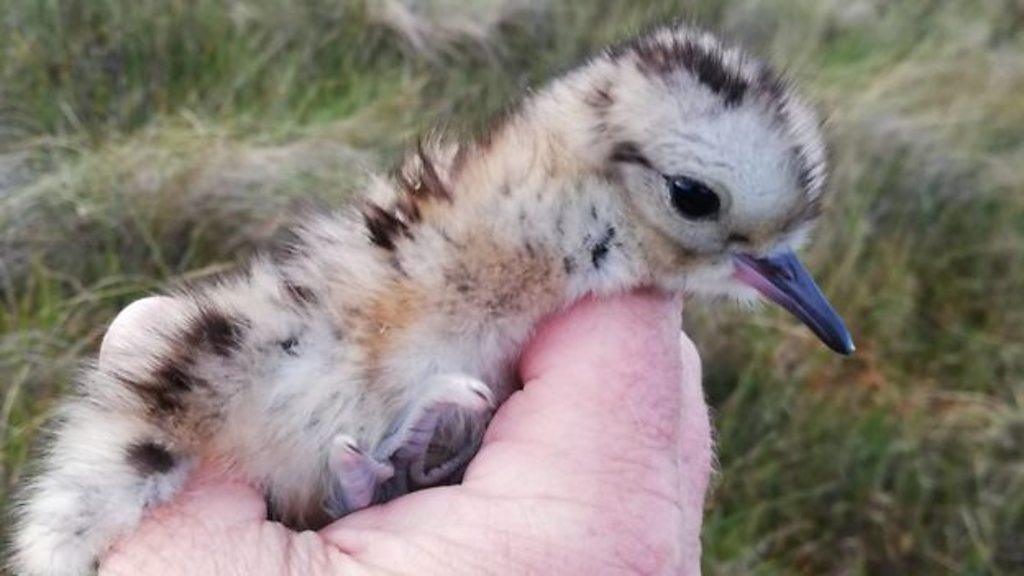
- Published31 May 2019
